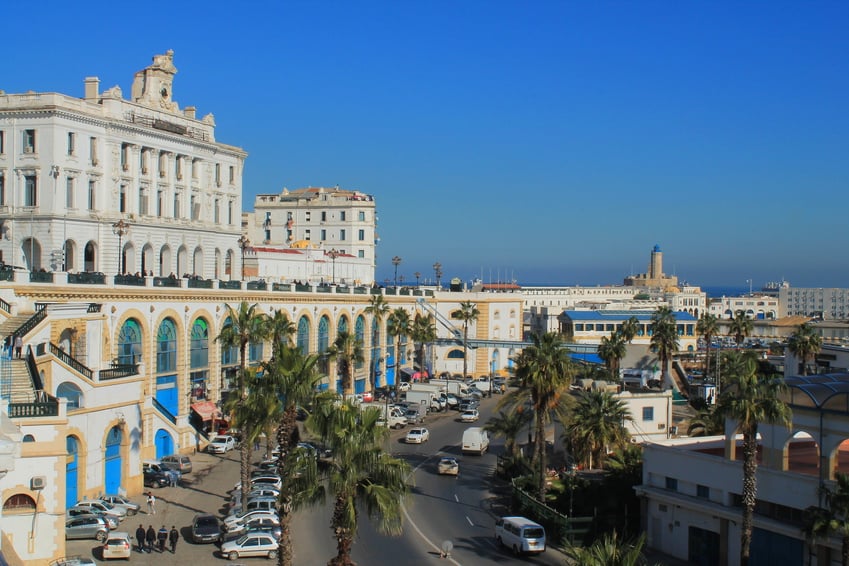The new Code of Public Tenders (Presidential Decree No. 15-247 of September 16, 2015), which had been approved on July 22, 2015 by the Council of Ministers, has finally been published in the Algerian Official Journal dated September 20, 2015 and will become effective three months after the date of publication, i.e. on December 20, 2015.
Analysis
The recent Presidential Decree abrogates the 2010 Code of Public Tenders and revamps the tender process in many ways.
- In an effort to more closely control the tender process, the National Contract Committees are replaced with sectorial or regional Contract Committees. In addition, a Monitor for the regulation of public tenders and a national body for the resolution of disputes are to be created.
- Ethics and deontology are reinforced through the adoption of a Code of Ethics for public officials which are involved in the tender process (to be drafted by the foregoing Monitor and approved by the Ministry of Finance). The foregoing public officials must undertake to comply with such Code and sign a declaration of absence of conflict of interest.
- The new Code expressly sets forth an obligation for the contracting department and the Contract Committees to comply with the principles of freedom of access to the tender process, equality of treatment for bidders and transparency of procedures. Offers must be assessed based on objective selection criteria (such as quality, delivery time, price, technical value, after-sale service, financing terms, aesthetic and functional characteristics, social performances to promote occupational integration, sustainability) decided prior to the launch of the tender procedure. As a general rule, the contract is awarded, without negotiation, to the offer considered as the most economically advantageous. Bidders can appeal the award of the contract to the relevant Contract Committee within 10 days of the publication of the award.
- The new regulation also attempts to clarify and simplify the tender process. For instance, the following rules are clarified:
- the authorization procedure for the performance of services prior to the conclusion of a contract in case of emergency;
- the offer evaluation procedure and the criteria to be used for the choice of the contractor;
- the rules applicable to group of companies;
- the appeal procedure;
- the amendment mechanism;
- the conditions applicable to subcontracting; and
- the acceptance procedure.
- Emphasis is placed on national production and Algerian manufacturing entities. For instance:
- The governmental purchaser must:
- take into account the potential of Algerian companies (in particular SMEs) when drafting the eligibility criteria and the offer evaluation procedure;
- favor integration to the national economy and the significance of batches or products which are subcontracted or acquired on the Algerian market;
- include in the specifications a training and transfer of knowledge mechanism in relation with the contract;
- provide in the specifications, in the case of foreign companies bidding alone, the obligation to subcontract at least 30% of the original contract price to Algerian companies, except in case of duly justified impossibility
- Regardless of the chosen contract procedure, there is also an obligation to include a clause in the contract requiring that imported products may only be used if the national equivalent is not available or its quality is not in compliance with applicable standards; moreover, the governmental purchaser may only use foreign sub-contractors when Algerian entities are unable to meet its needs;
- Negotiated contracts after consultation which pertain to “national institutions of State sovereignty” (e.g. defense contracts) and contracts concluded pursuant to the simple negotiation procedure (e.g. a priority project of national significance which is urgent; a project which promotes national production) may be exempt from the investment in partnership requirement whereas the 2010 Code exempted these contracts. Thus, it cannot be excluded that a number of contracts previously shielded from the “partnership commitment” will now contain an express requirement to make an investment into the local economy.
- The governmental purchaser must:
- As far as pricing in concerned, the contract price can exceptionally be set up on a provisional basis. Moreover, in the case of complex contracts, concluded on the basis of performance criteria to be achieved, the governmental purchaser can include an incentive clause in the contract in order to obtain a better price/quality/completion time. Additional guidelines are used for the selection of indices when prices can be updated.
- The new Code of Public Tenders also introduces the French legal concept of «public service delegation» at the end of the Code, thanks to which the State can proceed, in areas where the law allows it, with the performance of works or purchase of goods necessary for the operation of public service through a concession, leasing, governance or management contract. At the end of the contract term, the works or goods become the property of the relevant public institution or administration.
Conclusion
The new Code of Public Tenders incorporates a number of best practices that have developed since 2010. It is unclear, however, whether this updated Code of Public Tenders will have a real impact in terms of access and transparency to the Algerian tender process for foreign bidders and how the partnership requirement will be applied in practice. A number of implementing regulations remain to be adopted to give effect to the new provisions. In the meantime, the implementing regulations of the 2010 Code of Public Tenders will continue to apply until new texts are promulgated.



